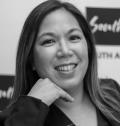Currently, of all the market segments in the US, the luxury market is perhaps the most buoyant and there is a distinct trend to buy up due to the weakness of the rand. It is also maturing in certain respects: travellers are more adventurous in terms of experience, and areas like Johannesburg have shaken off the negative connotations of a decade ago to become a destination rather than a transit point.
However, this hasn’t translated into a greater geographical spread and key areas like Cape Town, Kruger and Victoria Falls continue to dominate overwhelmingly, which would suggest that, despite some maturation, there is limited repeat business, or repeat business is re-visiting key areas. Areas like the Eastern Cape and KwaZulu Natal are hugely neglected and undersold, and we have to ask ourselves, why? Are they not perceived to offer something better than the core areas – or indeed are they not offering a luxury product good enough for the North American market, either in terms of property or experience? This is a very time-conscious market, and you have to be seen to be offering big bang for their buck and time. Tswalu has done this well, having taken a little-known region of South Africa, made it accessible and sold it strongly on unique selling points that other areas don’t have.
Interestingly, the shortage of bed-stock in the Greater Kruger area has led to a greater take-up in places like Madikwe and, to a lesser degree, Zululand, but this has been driven by necessity rather than marketing hype. Remember that this is a market that responds well to new developments, positive reviews and exposure – and this applies to restaurants, even coffee shops, wineries or new properties that push out the boat. They follow hype on social media, word of mouth and personal recommendations. And food and dining are vital drawcards for cities (Johannesburg and Durban take note!).
Guiding is increasingly vital and travellers don’t want a guide with facts and figures at their finger- tips: they want storytellers and personal insight. We refer to them as urban safari guides: unique people who can weave a story from environment and experience to give a situation context. They aren’t easy to find and also can’t be produced from a guiding school. They are the kind of guides who appreciate that the luxury traveller isn’t solely about helicopter flights and private sommeliers but that they visit a country like South Africa to connect and interact. I always use an example of one of our small groups who joined a cooking school in Khayelitsha for the day, and learned to cook Xhosa food in the morning then turned the tables and taught the students to make American-style sliders that afternoon. It was the highlight of their stay in this country. But this shouldn’t be misconstrued to mean that every connection needs to be a township one: one-on-one interactions relate to boutique wine farms, craftsmen, restaurateurs, small business owners and environmentalists. It’s about getting out of the vehicle and communicating that this market appreciates.
Linked to this is a strong desire to help and contribute to a worthy cause, whether social or environmental. Where we have had good success in encouraging repeat business is when a personal connection has been forged through a philanthropic involvement with a community or conservation individual and there is an ongoing link between the traveller and South Africa. And again, interactions are where these kinds of personal involvements are formed in a spontaneous fashion.
Ten years on, I feel that we need a new message to take to this market. There is still too much emphasis on the Mandela factor, which in many ways has reached saturation point. This is evident in the lukewarm response to the Mandela movie, Walk to Freedom, and also in the extremely limited take up on Mandela-driven itineraries in the United States. He is, of course, vitally important as a cog in the wheel of South African political history and iconic sites such as Robben Island will always be a huge drawcard, but a focus on Mandela from a marketing perspective is not the hook that Americans are looking for in 2015. It also has the unintentional effect of diminishing other key stories and figures of our political history, which contributes to a restricted narrative.
It presents an opportunity for us to re-invent and re-establish ourselves and in the process hopefully capitalise on the enormous goodwill of past visitors while introducing South Africa to a new generation of American travellers.



















